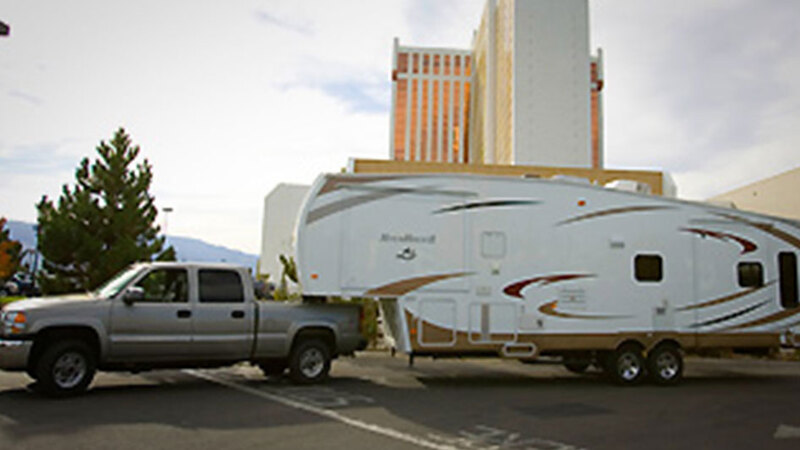Thanks for your support! If you make a purchase using our links in this article, we may make a commission. And, as an Amazon Associate, I earn from qualifying purchases. See the full disclosure here.
With the meteoric rise that RV vacations have seen in the past couple of years, it’s no surprise that people are starting to consider for themselves whether or not renting an RV is right for them. But how much does it actually cost to rent an RV and drive it cross country?
The quick answer is: it depends
There are many factors that go into how much RVs cost to rent. There are many questions to consider. Some of these include:
- What’s its length and RV category?
- How old is the motorhome or travel trailer?
- Are pets allowed?
In this article, we’ll be breaking down the nightly and weekly fees to determine a good estimate of how much RVs cost to rent for a week. We’ll then compare that to the cost of hotels, Airbnbs, and rental cars.
So, let’s answer the first question–– what is the average cost of renting an RV?
RV Rental Cost Per Week Breakdown
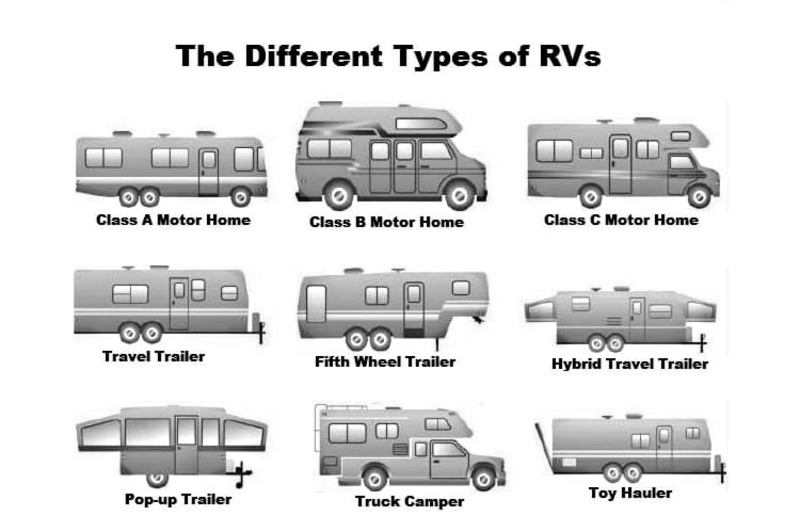
When looking at the table above, it’s important to bear in mind that these numbers come from averages. Details such as the age of the model or the quality of its amenities might get lost in translation. That being said, the averages are an accurate representation of what you can expect to see on RV rental listing pages.
According to a survey from the RV Rental Association, the two most popular types of RVs to rent are Class C motorhomes and Travel Trailers. This is due to their convenient sizes and offered amenities (particularly for the Class C RVs). So, a potential week of vacation in an RV might start anywhere between $350-$1,050 and go as high as $1,400 depending on the make and model.
8. Other Fees and Costs Not Featured

The table also neglects to incorporate the taxes and fees associated with renting an RV, much like a hotel or Airbnb. Most, though not all, RV rentals come with one or more of the following fees from the owner themselves. These additional costs should be factored into the overall cost of your vacation.
1. Cleaning Fee

Like a hotel room, an RV is your home while you stay in it–– which is why most RVs come with a one-time cleaning fee anywhere between $25-$90 (depending on the size and class of the vehicle). You’ll have peace of mind knowing that the RV you’re renting is 100% clean, sanitized, and ready to go for your adventure.
2. Pet fee

One unbeatable advantage to RVing over hotel stays is that renting an RV allows you to bring your furry companions with you almost anywhere. Many RVs allow pets with a one-time fee between $15-$75.
3. Campground/Attraction Fee
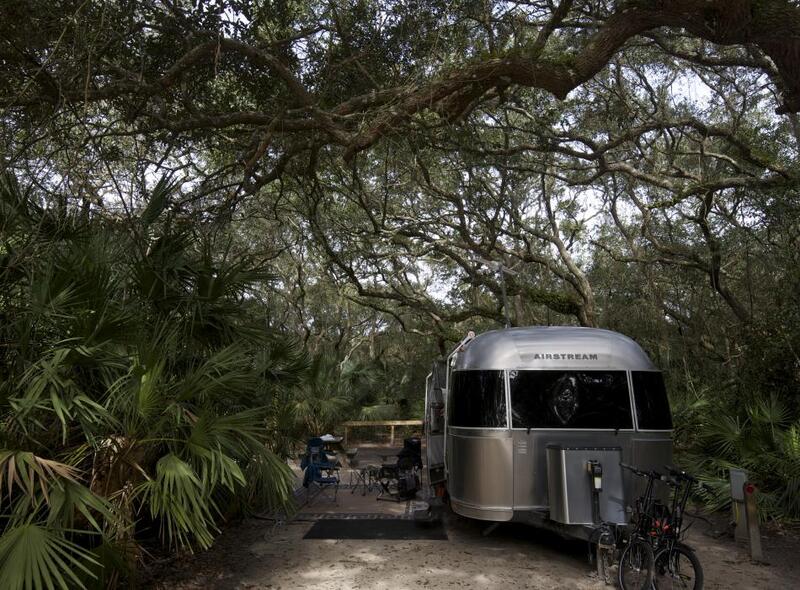
As far as entrance fees to state and national parks go, this is one parking rate that will have to be paid regardless of your mode of transportation. Most state parks have an entrance fee of around $25-$35. Nightly campground fees hover around $25 for an RV campsite and use of the grounds’ facilities.
These numbers may change drastically in either direction depending on where you are and what you’re doing–– many national parks don’t have an entrance fee, like Great Basin National Park in Baker, Nevada. Others will have select days throughout the year when the entrance fee is waived, so be sure to keep these dates in mind while you’re planning your trip.
4. Taxes
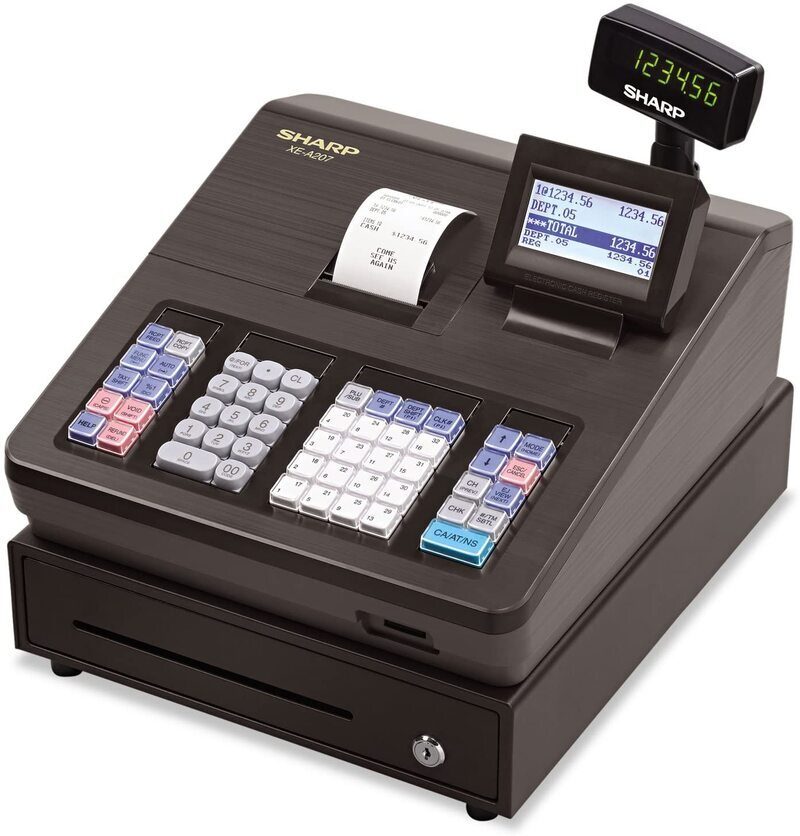
When renting an RV, you’ll be subject to state, county, and city taxes if applicable. So, if you live in Texas but the RV rental is in Oklahoma, you’ll pay Oklahoma’s sales tax.
5. Delivery Fee
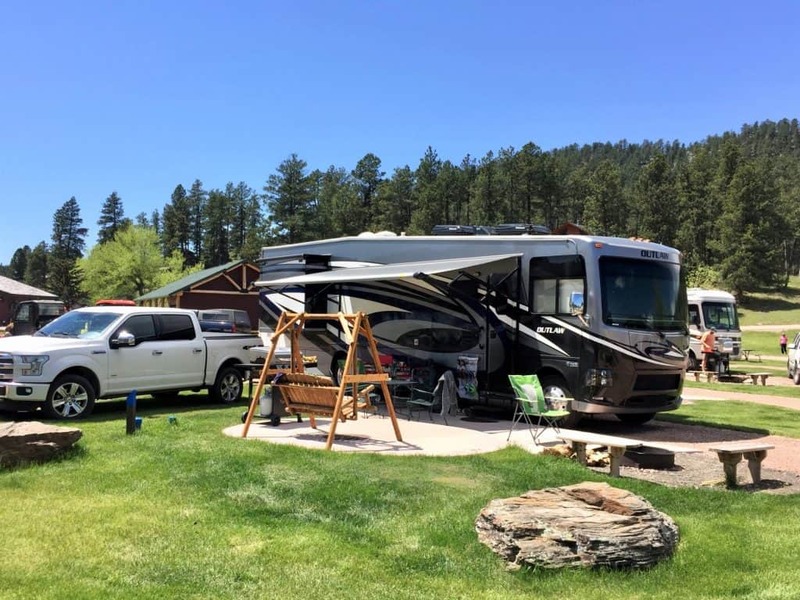
Many RVs offer the convenience of having your rental delivered and set up on your campsite for an additional one-time fee of $150-$200. For people who may feel uncomfortable driving or towing their rented RVs, this is a highly recommended option.
6. Add-Ons
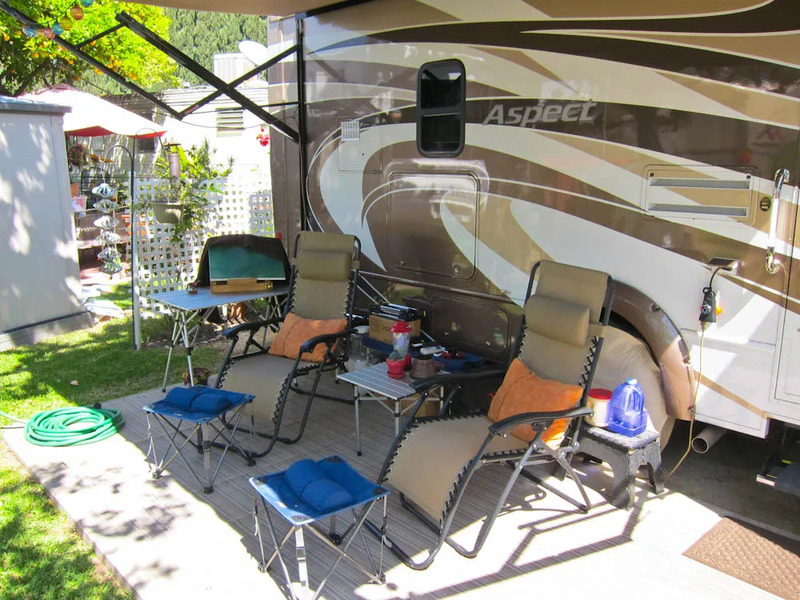
RV rental owners offer additional amenities and features that enhance the vacation experience. These add-ons can include RV outdoor furniture, barbecues, linens, cookware, and much more. Many renters find these extras worth the cost since the RVs have dishware and other items that can survive road travel.
7. Fuel & Mileage
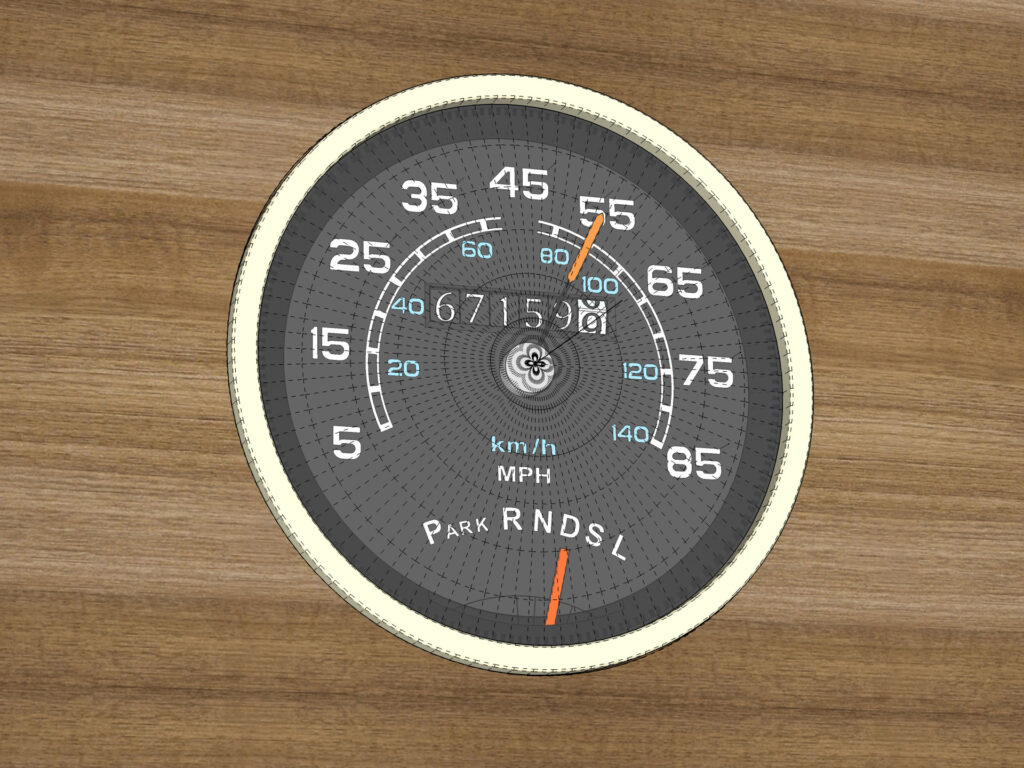
Like rental cars, RV owners expect you to bring motorhomes back with the same amount of fuel it started with at the start of the rental. If you’re having the RV delivered, that cost may be incorporated into the price. If you’re renting the RV close to the campground, your fuel cost may be a small top-off.
Some RVs have limits on how many miles per day are allowed before the additional cost is accrued. For example, the motorhome owner you’re renting from could allow you 100 free miles per day. Any mileage over that, you would be subject to a per-mile rate.
In those situations, mileage rates run anywhere between $0.25-$0.85. However, most mileage allowances are between 100-150 miles per day, so if your trip isn’t as mile-intensive, this isn’t something you should worry about.
8. RV Rental Insurance

Most important of all the fees involved with renting an RV is making sure it’s insured during your trip. RVnGO offers industry-leading $1 million liability insurance for Hosts and Guests. The RV has damage coverage of up to $200,000.
So you, as the Guest, would pay a nightly fee to cover the insurance between $25-$70 depending on the size of the vehicle. Learn more about RVnGO’s insurance policy for Guests.
Unlike other platforms, RVnGO doesn’t charge any non-value, tacked-on “service,” transaction, or rental fees for trips shorter than five days. This way you can be sure that you’re getting the best value for your vacation and only paying the fees that the Hosts themselves have specified for your trip.
Is It Cheaper to Rent an RV or Stay In a Hotel?
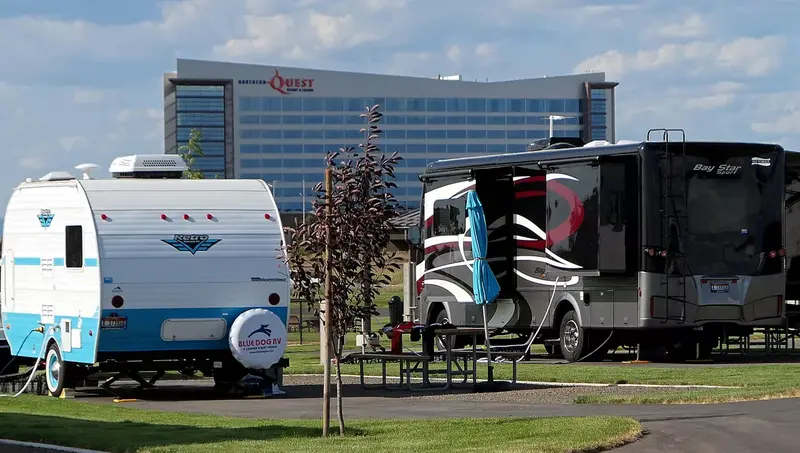
So, this all begs the increasingly hot question: which is cheaper, renting an RV or staying in a hotel?
Before we do another cost breakdown, it’s important to note that people look for different experiences when renting an RV or staying in a hotel room for a week. RVs allow people to stay within the heart of National Parks or scenic locations for a camping experience that can’t be replicated by a day visit from nearby hotels or lodges.
When you rent an RV, the experience starts when you first pick it up. There aren’t pauses (like airport layovers, lines at the rental car counter, etc.) in the way that traditional hotel vacations have. It is, quite literally, as immersive as you can get in a true journey with yourself and your loved ones.
That said, let’s compare two different popular road trip destinations using their average costs. We’ll factor in the weekly rate for a 3-star or above hotel room, Airbnb, and rental car for a family of 2-4. For this task, we’ll choose San Francisco, California as a gateway to Yosemite National Park, and Sedona, Arizona, for its proximity to Red Rock State Park, and include an option for an extended stay in Boston for those interested in exploring the city as part of their journey. The following rates are being observed during each destination’s respective high seasons; May and July. The numbers have been recorded from Expedia and Kayak.
| Destination | Hotel Weekly Rate | Airbnb Weekly Rate | Car Rental Weekly Rate |
| San Francisco, CA | $1,190-$2,450 | $1,610-$2,800 | $240-$350 |
| Sedona, AZ | $1,610-$3,150 | $1,120-$3,150 | $290-$500 |
| Boston, MA | $1,500-$2,800 | $1,250-$2,100 | $225-$350 |
- San Francisco, CA: Hotel and Rental Car= $1,450- $2,450
- Sedona, AZ: Hotel and Rental Car= $1,900- $3,700
- Boston, MA: Hotel and Rental Car= $1,725-$3,150
In comparison, the cost of a standard RV rental campground within both major cities ranges from $43 to $75 per night on average. Regardless of whether or not your rental RV is parked within a major city, state, or national park, the average cost of a week’s vacation (per night x 7 nights) is still cheaper with an RV than it is to stay in a hotel or Airbnb with a rental car.
- Class C Motorhome: Campground for a week and RV Rental: $1,351- $1,925
- Travel Trailer: Campground for a week and RV Rental: $651- $1,400
Note that these prices don’t include weekly rates or any adjustments made due to the Great American Outdoors Act (GAOA). But, even when you factor in the new GAOA weekly rates, you’ll still see cost savings when compared to a hotel or Airbnb.
Ultimately, your RV vacation is what you make of it. Most people that have rented an RV before would likely tell you that it’s not about the cost of an RV or a hotel but the moments themselves and the experiences gained from being in the heart of nature with others. The memories are what count–– the RV simply gets you there.
Where Will You Go Next?
Do you want to know about a specific city? Let’s look at San Diego, CA as an example. As stated above, expect to pay about $80 to $250 or more on the rental each day, depending on the size of the RV. You will also need to include costs for RV rental insurance, add-ons, cleaning fee, pet fees, extra mileage, and gas.
RV rental costs per week range from $1,000 to $2,000 (including taxes). However, when you tally the total costs, you still come out ahead by choosing a motorhome over a hotel. You save the most money on meals, which are pricey when staying at hotels.
What Will You Find on an RVnGo Host Listing?
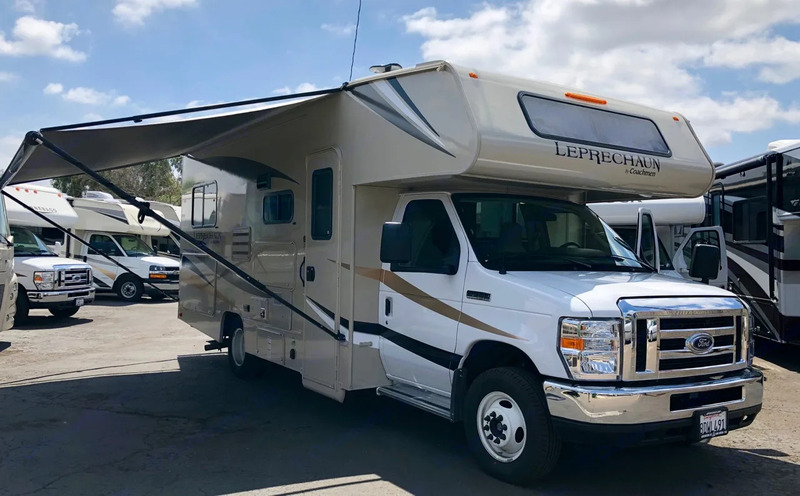
Below is a Host from San Diego, CA, whom we found through RVnGO and their Class C motorcoach.
“This RV is a great selection for its ease of driving for people compared to a Class A, and many people don’t have a vehicle to tow a trailer. We went with RVnGO because out of all the other sites, they do not charge ANY fees to the Host or the Guest, and the insurance coverage is considerably better.”
Adventure KT’s base RV Rental weekly rate is $1,365 for their 25 foot 2019 Coachmen Leprechaun 22QB-2. This RV sleeps 6 passengers. The charges from the Host include a booking deposit of $515.24 and a security deposit of $1,500. They also have a $140 prep, cleaning fee, and a $10 pet fee. There are special packages you can select as well like the Yosemite Park or the Joshua Tree Park packages with special pricing.
The insurance premium is $360 for a $1 million dollar liability coverage and up to $200,000 in damages coverage. You will also have 24/7 roadside assistance which will be $72. Then there is the 3% credit card processing fee of $52.34
As stated in the first section of this article, these rates vary depending on the Host, the type of RV, and the amenities offered. When shopping, you will want to be sure to look at multiple Host listings in a side-by-side comparison for the best choice.
| RV Rental Charges | Price |
| Weekly Rate | $1,365 |
| Booking Deposit | $515.24 |
| Prep Fee | $140 |
| Cleaning Fee | $0 |
| Security Deposit | $1,500 |
| Insurance | $360 |
| 24/7 Roadside | $72 |
| Credit Card Processing 3% | $52.34 |
| Total | $4,004.58 |
You can shop and compare rates of course. Each individual Host or RV Rental Company may also charge extra for generator usage, extra mileage, linens, or a waste dumping charge.
Compare several Hosts around San Diego, CA to get a good idea of the rates in the area. Shop and reserve your RV Rental 3-6 months in advance to lock in the one you want.
***NOTE: Other platforms charge Guests 10% or more of the total booking rates and take 20% or more from the Hosts. Other platforms also charge a daily rate for insurance which is calculated differently from a nightly rate and costs more. Other platforms also may offer different insurance coverages than what is shown on their website, so you may not be getting what you expect and are not getting the coverages that are stated. So please when shopping, be sure to read everything.
Now that you’re ready to rent an RV get your Packing List Checklist, and have an amazing trip.

